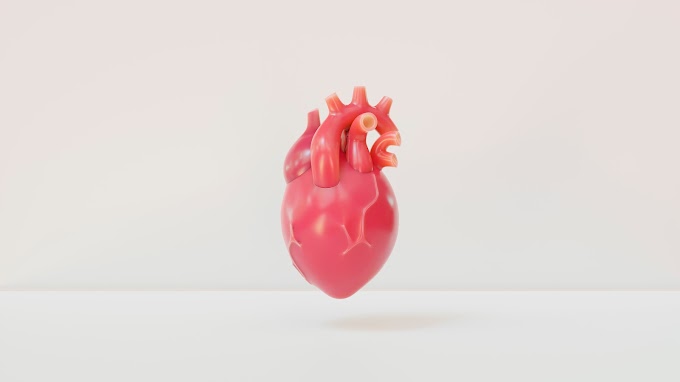Image Source: FreeImages
10 Effective Ways to Stop Heart Pain: A Comprehensive Guide on Relieving Cardiac Discomfort
As a healthcare professional, I understand the importance of addressing heart pain and its impact on overall well-being. Heart pain, also known as angina, can be a distressing symptom that requires attention and management. In this comprehensive guide, I will discuss ten effective ways to stop heart pain and provide you with valuable insights on relieving cardiac discomfort.
Understanding Heart Pain and Its Causes
Heart pain, or angina, is a common symptom experienced by individuals with heart conditions. It is typically described as a discomfort, pressure, or squeezing sensation in the chest. While heart pain can be alarming, it is essential to understand its underlying causes.
There are various factors that can contribute to heart pain, including coronary artery disease, which is characterized by the narrowing or blockage of the blood vessels that supply the heart muscle with oxygen-rich blood. Other potential causes include high blood pressure, heart valve problems, and inflammation of the heart muscles.
It is crucial to recognize the different types of heart pain. Stable angina typically occurs during physical exertion or emotional stress and subsides with rest or medication. Unstable angina, on the other hand, is more severe and can occur even at rest. If you experience any chest discomfort or suspect heart pain, it is essential to seek medical help promptly.
When to Seek Medical Help for Heart Pain
While some cases of heart pain may be transient and harmless, it is crucial to know when to seek medical help. It is recommended to contact emergency services immediately if you experience severe chest pain or discomfort that lasts longer than a few minutes, pain that radiates to your arm, jaw, neck, or back, or if you feel dizzy, nauseous, or short of breath.
Additionally, if you have a history of heart disease or other risk factors such as diabetes, high cholesterol, or a family history of heart conditions, it is essential to consult with a healthcare professional regarding any chest pain or discomfort. They will be able to evaluate your symptoms, perform necessary tests, and provide appropriate guidance on managing your heart pain.
Lifestyle Changes to Alleviate Heart Pain
Making certain lifestyle changes can significantly alleviate heart pain and improve your overall cardiac health. A heart-healthy lifestyle includes adopting a balanced diet, engaging in regular physical activity, managing stress levels, avoiding smoking, and maintaining a healthy weight.
A diet rich in fruits, vegetables, whole grains, lean proteins, and healthy fats can help reduce the risk of heart disease and alleviate heart pain. It is advisable to limit the intake of saturated fats, trans fats, cholesterol, and sodium, as they can contribute to the development of heart conditions.
Engaging in regular exercise is vital for maintaining a healthy heart. Physical activity helps strengthen the heart muscle, improve circulation, and manage weight. Aim for at least 150 minutes of moderate-intensity aerobic exercise per week, such as brisk walking, swimming, or cycling. Additionally, incorporate strength training exercises to improve overall cardiovascular fitness.
Managing stress is also crucial in alleviating heart pain. Chronic stress can contribute to the development of heart conditions and exacerbate symptoms. Explore stress management techniques such as deep breathing exercises, meditation, yoga, or engaging in hobbies and activities that bring you joy and relaxation.
Diet Modifications for Heart Pain Relief
In addition to adopting a heart-healthy diet, specific modifications can help alleviate heart pain and promote overall cardiac well-being. Incorporating foods rich in omega-3 fatty acids, such as fatty fish like salmon and mackerel, can help reduce inflammation and improve heart health. Other beneficial foods include nuts, seeds, whole grains, and legumes, which are high in fiber and provide essential nutrients for heart health.
Limiting the consumption of processed foods, sugary beverages, and excessive caffeine can also contribute to heart pain relief. These foods and beverages can lead to weight gain, increased blood pressure, and contribute to the development of heart conditions.
It is essential to consult with a registered dietitian or healthcare professional to create a personalized diet plan that caters to your specific dietary needs and preferences while addressing your heart pain.
The Role of Exercise in Managing Heart Pain
Regular exercise plays a vital role in managing heart pain and improving overall cardiovascular health. Engaging in physical activity helps strengthen the heart muscle, improve blood flow, lower blood pressure, and reduce the risk of heart disease.
Aerobic exercises, such as walking, jogging, swimming, or cycling, are particularly beneficial for managing heart pain. These exercises increase heart rate and improve heart and lung function. Aim for at least 30 minutes of moderate-intensity aerobic exercise most days of the week.
Strength training exercises are also essential for maintaining a healthy heart. These exercises, such as lifting weights or using resistance bands, help build muscle mass, improve metabolism, and enhance overall cardiovascular fitness. It is advisable to incorporate strength training exercises at least two days a week, targeting major muscle groups.
Always consult with a healthcare professional before starting any exercise program, especially if you have a history of heart conditions or experience heart pain. They will be able to provide guidance on suitable exercises and help you create a safe and effective exercise plan tailored to your needs.
Stress Management Techniques for Reducing Heart Pain
Stress can have a significant impact on heart health and contribute to the development or exacerbation of heart pain. Therefore, implementing effective stress management techniques is essential for reducing heart pain and promoting overall well-being.
Deep breathing exercises are a simple yet powerful stress management technique that can be practiced anywhere, anytime. Taking slow, deep breaths in through your nose and out through your mouth can help activate the body's relaxation response, reduce stress hormones, and promote a sense of calm.
Meditation and mindfulness practices are also beneficial for managing stress and reducing heart pain. These practices involve focusing your attention on the present moment, allowing you to cultivate a sense of inner peace and reduce anxiety.
Engaging in activities that bring you joy and relaxation, such as pursuing hobbies, spending time in nature, or listening to calming music, can also help alleviate stress and reduce heart pain. Prioritizing self-care and setting aside time for activities that nourish your mind, body, and soul is essential for overall well-being.
Natural Remedies for Relieving Heart Pain
In addition to lifestyle modifications, several natural remedies can help relieve heart pain and promote cardiovascular health. These remedies, although not a substitute for medical treatment, can complement your existing management plan.
Garlic has been used for centuries for its potential cardiovascular benefits. It may help reduce blood pressure, improve cholesterol levels, and enhance blood flow. Incorporating garlic into your diet or considering garlic supplements, under the guidance of a healthcare professional, may provide some relief from heart pain.
Hawthorn extract is another natural remedy that has been traditionally used for heart health. It may help dilate blood vessels, improve blood flow, and reduce symptoms of angina. However, it is important to consult with a healthcare professional before starting any herbal supplements to ensure safety and efficacy.
Coenzyme Q10 (CoQ10) is a naturally occurring compound in the body that plays a crucial role in energy production within cells. It also acts as an antioxidant, protecting cells from damage. Some studies suggest that CoQ10 supplements may improve heart health and reduce angina symptoms. However, further research is needed to establish its effectiveness.
It is essential to remember that natural remedies may interact with medications or have potential side effects. Always consult with a healthcare professional before incorporating any natural remedies into your management plan.
Medications for Treating Heart Pain
In some cases, lifestyle modifications and natural remedies may not provide sufficient relief from heart pain. Medications may be prescribed by a healthcare professional to manage heart pain and improve cardiac function.
Nitroglycerin is a commonly prescribed medication for the treatment of heart pain. It works by relaxing and widening blood vessels, improving blood flow to the heart muscle. Nitroglycerin can be taken as a tablet, spray, or patch and provides rapid relief from angina symptoms.
Beta-blockers are another class of medications frequently prescribed for heart pain. These medications help reduce blood pressure, slow heart rate, and decrease the workload on the heart. They are particularly beneficial for individuals with stable angina.
Calcium channel blockers are often used to treat heart pain by relaxing blood vessels and improving blood flow. These medications can help reduce the frequency and severity of angina episodes.
It is vital to take medications as prescribed by a healthcare professional and report any side effects or concerns to them. Regular follow-up appointments will allow for adjustments in medication dosage or alternative treatment options if necessary.
Alternative Therapies for Heart Pain Relief
In addition to conventional treatments, several alternative therapies may provide relief from heart pain. These therapies can be used as complementary approaches to conventional medical care and should be discussed with a healthcare professional.
Acupuncture is an ancient Chinese practice that involves the insertion of thin needles into specific points on the body. It is believed to stimulate energy flow and promote healing. Some individuals find acupuncture helpful for managing heart pain and reducing stress.
Chiropractic care focuses on the alignment of the spine and musculoskeletal system. It aims to improve overall health and well-being by addressing imbalances in the body. While chiropractic care may not directly treat heart pain, it can help improve posture, reduce muscle tension, and promote overall wellness.
Massage therapy is another alternative therapy that can provide relief from heart pain. It helps relax muscles, reduce stress, and improve circulation. Regular massage sessions may help alleviate tension and promote relaxation, thereby reducing heart pain.
It is crucial to consult with a healthcare professional before trying any alternative therapies to ensure they are safe and appropriate for your specific condition. They can provide guidance on integrating these therapies into your management plan.
Conclusion: Taking Control of Your Heart Health
Heart pain can be a distressing symptom that requires attention and management. By understanding the causes of heart pain, knowing when to seek medical help, and implementing lifestyle changes, diet modifications, exercise, stress management techniques, natural remedies, and medications, you can take control of your heart health and alleviate cardiac discomfort.
Remember to consult with a healthcare professional for personalized guidance and support. They will be able to evaluate your specific condition, provide appropriate treatment options, and monitor your progress. By proactively addressing heart pain, you can improve your quality of life, reduce the risk of complications, and promote long-term cardiovascular health.
Take the first step towards relieving heart pain and prioritizing your heart health today!
CTA: Schedule a consultation with a healthcare professional to discuss your heart pain and develop a personalized management plan. Your heart health matters, and taking action now can make a significant difference in your well-being.




.jpg)




.jpg)



0 Comments